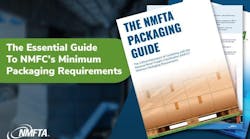Rocky Balboa did not take as many hits as the economy has recently. Yet it seems to keep on ticking, although just a heartbeat away from a full-blown recession. For many, the recession is already in place. Just ask recent college graduates expecting to find employers lining up to take advantage of their investment in an education, or ask autoworkers, ask the housing industry, ask fixed-income seniors, ask those seeking summer jobs. The list goes on.
Employment data for May posted a decline of nearly 50,000 jobs, with the decline for 2008 standing at nearly 325,000. The unemployment rate of 5.5% is the highest in almost four years. It is not likely that a turnaround in employment will occur before the fall. That does not bode well for the economy. Any decline in the consumer's ability to spend will negatively affect the potential for an economic recovery.
Within trucking, employment declined by 4,000 for the month of May, but that was payroll data. The actual number of unemployed is significantly higher since owner-operators are not captured in payroll data. Motor carriers have reduced employment in 2008 by slightly more than 10,000. That is a reflection of lower freight volumes, but also a result of significant downward pressure on profits due to fuel cost increases.
The weak dollar has been cited as one of the causes of the fuel price increase, but that does not account for the rise in diesel prices relative to gasoline. The only cause that appears to make sense for the faster pace for diesel compared to gasoline is the move to ULSD (ultra-low sulfur diesel). That may give concern to those who forecasted that the increase in cost would be less than 10¢/gal., actually less than 5¢/gal. according to regulators.
Prior to the requirement of ULSD, there was a 26¢ difference between the pump price for regular gasoline and diesel at the national level. This was at the end of 2006, when gasoline was $2.34/gal. and diesel was $2.60/gal.
On June 16, gasoline posted a national average price of $4.08/gal. At the same time, diesel saw a pump price of $4.69/gal., which is a 61¢ difference. The difference in the increase comes to 35¢/gal., about nine times the average estimated by regulators. No one knows the dangers of forecasting more than yours truly; however, I do not have the same economic consequences as those that set national policy and I am forever grateful for that.
The price of gasoline is now over $4/gal. for regular nationwide and that is as the public is actually reducing consumption. With more reduction expected in the future, we may be able to see a stabilized price, and hopefully a decline.
When it comes to diesel, we won't be so lucky. Freight levels are currently lower than in the past and will increase as the economy improves, resulting in the need for more diesel fuel to operate equipment. Can we reduce the movement of freight to accommodate the expected rise in fuel costs? The short answer is not unless we are willing to have less competitive pricing at retail levels for consumer goods.
Goods that travel longer distances will have increased delivery costs and that could lead to a reduction in distribution. Goods that require more staging and handling will have increased costs and that in turn could lead to a reduction in distribution.
The good news is that we will handle the body blows and keep on moving forward. We are a nation that can adapt.


